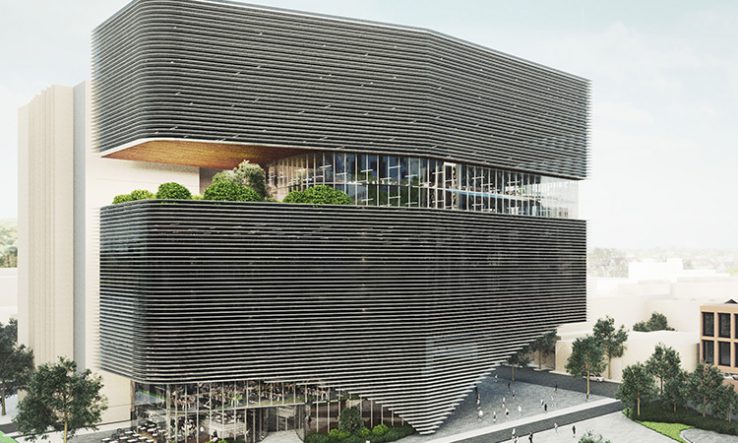
Image: State government of Victoria
Australian state commits hundreds of millions to two disease control centres
The state of Victoria is bidding to be a leader in combating infectious diseases in the post-Covid world, with the announcement of an A$800 million vaccine manufacturing plant and plans for an Australian Institute of Infectious Disease.
The manufacturing plant at Tullamarine, a northern suburb of Melbourne, will be built and operated by Seqirus, the vaccine subsidiary of Australian biotech company CSL. It will use cell-based technology instead of the traditional egg-based manufacturing process, and will replace an existing facility at Parkville. Its main purpose will be to manufacture influenza vaccines, but it will also produce antivenom for Australian snakes, spiders and marine animals.
Announcing the manufacturing plant on 16 November, CSL chief executive Paul Perreault said “cell-based influenza vaccine technology offers many advantages over the existing process, including being more scalable and offering faster production—particularly important in the case of influenza pandemics”.
The plan to create an Australian Institute of Infectious Disease, the proposed design of which is pictured above, was announced separately on 13 November. It would bring together existing research centres including the Burnet Institute, which specialises in medical research, on a site next to the Peter Doherty Institute for Infection and Immunity near the University of Melbourne.
It would also house researchers from the Walter and Eliza Hall Institute of Medical Research, the Murdoch Children’s Research Institute, the University of Melbourne and CSL.
The state has committed A$155m and the University of Melbourne and its partners have promised A$150m. The remainder of the A$550m project cost is dependent on a commitment from the federal government. Of the state funding, A$5m will go immediately to a scoping study to build the case for the centre.
Federal health minister Greg Hunt has not yet backed the project, telling The Australian newspaper that the government had already promised A$220m to the Commonwealth Scientific and Industrial Research Organisation’s existing Australian Centre for Disease Preparedness, based in Geelong.
The state government is yet to say how it is supporting the Seqirus plant, but industry support minister Martin Pakula said the investment was “significant”.
The federal government has also recently supported CSL’s work on developing and manufacturing a Covid-19 vaccine. That money was spent on training staff and reconfiguring equipment at the existing Broadmeadows facility.
On 9 November, Seqirus began manufacturing doses of the Oxford and AstraZeneca vaccine candidate. The first doses are expected to be available in early 2021, if the vaccine is approved for use. Seqirus is also the chosen manufacturer for the University of Queensland’s UQ-CSL V451 vaccine.